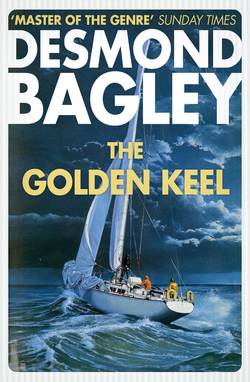Читать книгу The Golden Keel - Desmond Bagley, Desmond Bagley - Страница 13
VI
ОглавлениеIt was long past lunch-time when. I finished the story. My throat was dry with talking and Jean’s eyes had grown big and round.
‘It’s like something from the Spanish Main,’ she said. ‘Or a Hammond Innes thriller. Is the gold still there?’
I shrugged. ‘I don’t know. I haven’t read anything about it in the papers. For all I know it’s still there – if Walker or Coertze haven’t recovered it.’
‘What happened to Walker?’
‘He got his two thousand quid,’ I said. ‘Then embarked on a career of trying to drink the distilleries dry. It wasn’t long before he lost his job and then he dropped from sight. Someone told me he’d gone to Durban. Anyway, I haven’t seen him since.’
Jean was fascinated by the story and after that we made a game of it, figuring ways and means of removing four tons of gold from Italy as unobtrusively as possible. Just as an academic exercise, of course. Jean had a fertile imagination and some of her ideas were very good.
In 1959 we got clear of our indebtedness to the bank by dint of strict economy. The yard was ours now with no strings attached and we celebrated by laying the keel of a 15-tonner I had designed for Jean and myself. My old faithful King Penguin, one of the first of her class, was all right for coastal pottering, but we had the idea that one day we would do some ocean voyaging, and we wanted a bigger boat.
A 15-tonner is just the right size for two people to handle and big enough to live in indefinitely. This boat was to be forty feet overall, thirty feet on the waterline with eleven feet beam. She would be moderately canvased for ocean voyaging and would have a big auxiliary diesel engine. We were going to call her Sanford in memory of old Tom.
When she was built we would take a year’s leave, sail north to spend some time in the Mediterranean, and come back by the east coast, thus making a complete circumnavigation of Africa. Jean had a mischievous glint in her eye. ‘Perhaps we’ll bring that gold back with us,’ she said.
But two months later the blow fell.
I had designed a boat for Bill Meadows and had sent him the drawings for approval. By mishap the accommodation plans had been left out of the packet, so Jean volunteered to take them to Fish Hoek where Bill lives.
It’s a nice drive to Fish Hoek along the Chapman’s Peak road with views of sea and mountain, far better than anything I have since seen on the Riviera. Jean delivered the drawings and on the way back in the twilight a drunken oaf in a high-powered American car forced her off the road and she fell three hundred feet into the sea.
The bottom dropped out of my life.
It meant nothing to me that the driver of the other car got five years for manslaughter – that wouldn’t bring Jean back. I let things slide at the yard and if it hadn’t been for Harry Marshall the business would have gone to pot.
It was then that I tallied up my life and made a sort of mental balance sheet. I was thirty-six years old; I had a good business which I had liked but which now I didn’t seem to like so much; I had my health and strength – boat-building and sailing tend to keep one physically fit – and I had no debts. I even had money in the bank with more rolling in all the time.
On the other side of the balance sheet was the dreadful absence of Jean, which more than counter-balanced all the advantages.
I felt I couldn’t stay at the yard or even in Cape Town, where memories of Jean would haunt me at every corner. I wanted to get away. I was waiting for something to happen.
I was ripe for mischief.
